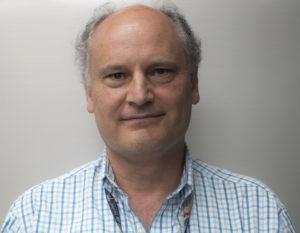Our June Immunologist Month is Manuel Antonio Franco, a Full Professor at the Pontificia Universidad de Javeriana (PUJ) in Bogota, Colombia. He is Medical Doctor and has a PhD in Fundamental Immunology from the Universite de Paris VII in Paris, France. Upon completion of his PhD, Manuel Antonio took up a Post-Doctoral research position at Standord University in the United States of America. He currently works for the Instituto de Genética Humana at School of Medicine in the PUJ, where he conducts his research in mucosal immunology. Manual Antonio is an Academician of the Academia Colombiana de Ciencias Exactas, Físicas y Naturales (ACCEFYN) in Colombia and he was the Director of Graduate School Sciences at the PUJ.
Current Position: Professor, School of Medicine, Pontificia Universidad Javeriana, Bogota – Colombia.
What is your research interest? Mucosal immunology, Immune response to Rotavirus.
How has your research contributed to better understanding of your research area? I have contributed in three areas: (1) the mechanisms that mediate immunity to rotavirus in mice, (2) characterisation of the adaptive immune response to rotavirus in adults and children with or without rotavirus disease or after vaccination and (3) the in vitro innate immune response generated against rotavirus by model intestinal epithelial cells.
Why do you work in immunology? I find the subject fascinating! And hope I can contribute in the long term to develop methods to combat mucosal pathogens and rotavirus in particular.
Why do you think basic research in immunology is important? We have learned a great deal about immunology in the past 50 year, but what we still need to learn an immense amount more. We need to do basic research because it is “beautiful” and because it will help us improve human health in the long term.
What is your main focus, the study of the T cells, B cells or both of them? Neither… I like to think that I focus on “all” of the immune response to rotavirus.
What have been your biggest difficulties conducting research? Getting started! Knowing how to choose a research focus was difficult and more importantly being able to join a lab with a good mentor. Being able to get funding for students and scientific projects has been a great challenge for the work I have developed in Colombia.
What is the best advice or recommendations for young scientist in Colombia? Choose your mentor carefully. For this you should not only consider scientific aspects (quality of the publications) but human qualities of potential mentors. Set long term goals for your career.
What immunological activities are you involved in? I am member of The Colombian Association of Immunology ACOI and the Latin American Mucosal Immunology Group LAMIG and I invite and encourage all the interested immunologist to join these institutions.
What do you consider to be the greatest gift you could leave to immunology in Colombia? Students that can have a rewarding career in immunology research in Colombia
Interview by Jose Mateus Triviño











